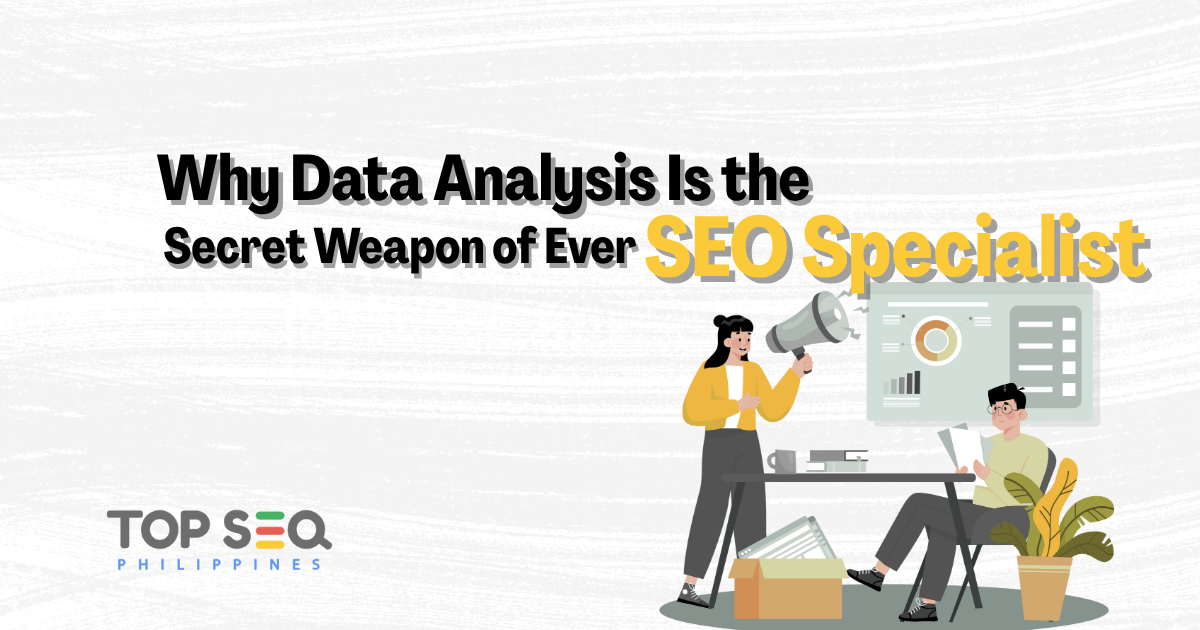Introduction
Every SEO Specialist knows that guesswork no longer works. Search engines evolve constantly, user behavior shifts daily, and competition keeps getting tougher. To stay ahead, SEO professionals must rely on something more powerful than intuition data analysis.
Data has become the secret weapon that separates good SEO from great SEO. It’s what helps specialists understand what’s working, what’s not, and how to improve every campaign for maximum impact.
In this article, we’ll explore why data analysis is essential for SEO Specialists, the types of data that matter most, and how it shapes effective SEO strategies.
1. The Role of Data in Modern SEO
Gone are the days when SEO was just about adding keywords to content and getting backlinks. Today, SEO is a data-driven process that requires analyzing massive amounts of information from search intent and user behavior to technical site performance.
A skilled SEO Specialist uses data to make informed decisions rather than assumptions. By studying metrics, patterns, and trends, they can:
- Identify which keywords drive the most conversions
- Understand how visitors interact with a website
- Optimize content for better user engagement
- Improve site speed and technical health
- Track ROI and performance across campaigns
Simply put, data turns SEO from a guessing game into a measurable science.
2. Why Data Analysis Is the Backbone of SEO Success
a. It Helps Identify What’s Working (and What’s Not)
SEO campaigns involve many moving parts keywords, backlinks, content, technical factors, and user experience. Without data, it’s impossible to know which part contributes most to your results.
Data analysis allows an SEO Specialist to pinpoint exactly what’s driving success. For instance, a deep dive into Google Analytics might reveal that a certain blog post drives 40% of organic traffic signaling an opportunity to replicate that success with similar content.
b. It Enables Smarter Keyword Strategies
Keyword research is at the heart of SEO, but raw keyword lists aren’t enough. Data analysis reveals keyword performance, competitiveness, and user intent.
By studying search volume, click-through rates (CTR), and conversion data, an SEO Specialist can target terms that truly generate business value not just traffic.
c. It Guides Content Optimization
SEO without content is like a car without fuel. However, not all content performs equally. Data analysis shows which pages attract the most engagement, how long users stay, and what they do next.
These insights help SEO Specialists optimize titles, headings, and content structure to increase visibility and conversions.
3. Key Metrics Every SEO Specialist Should Analyze
There are countless SEO metrics available, but some are more critical than others. Here are the core ones every SEO Specialist should track regularly:
a. Organic Traffic
This metric shows how many users visit your site from search engines. A steady increase in organic traffic indicates effective SEO performance.
b. Click-Through Rate (CTR)
CTR measures how often people click your website in search results. A low CTR may signal that your meta titles or descriptions need improvement.
c. Bounce Rate and Dwell Time
Bounce rate shows how quickly visitors leave, while dwell time measures how long they stay. Both reflect content relevance and user engagement.
d. Conversion Rate
Ultimately, SEO success isn’t just about traffic it’s about results. Conversion rate tells you how effectively your site turns visitors into leads or customers.
e. Backlink Profile
Analyzing backlinks helps identify which external sites are linking to yours, their authority, and whether those links are helping or hurting your SEO.
f. Core Web Vitals
Metrics like page speed, interactivity, and visual stability are now key ranking factors. Data analysis ensures your website delivers a smooth user experience.
4. The Tools SEO Specialists Use for Data Analysis
Modern SEO Specialists rely on powerful tools to collect, interpret, and visualize data. Each tool offers unique insights that help shape SEO strategies.
a. Google Analytics
The foundation of SEO analysis, this tool tracks traffic sources, user behavior, and conversions. It’s essential for measuring overall site performance.
b. Google Search Console
This provides direct insights from Google, including keyword performance, indexing issues, and click data helping SEO Specialists fine-tune site visibility.
c. SEMrush / Ahrefs / Moz
These platforms are used for keyword tracking, backlink analysis, and competitor benchmarking. They help identify opportunities for growth.
d. Screaming Frog SEO Spider
A must-have for technical SEO audits, it crawls websites to detect broken links, duplicate content, and meta tag issues.
e. Data Studio / Looker Studio
For visualization and reporting, these tools turn complex data into easy-to-understand dashboards, making it easier to share results with clients or teams.
5. Turning Data Into Actionable Insights
Collecting data is only half the battle. The real skill of an SEO Specialist lies in interpreting that data and translating it into actionable steps.
Here’s how data becomes strategy:
- Identify the issue: For example, a drop in traffic might signal a technical error or Google algorithm update.
- Analyze contributing factors: Check for crawl errors, ranking drops, or backlink losses.
- Implement changes: Fix issues, update content, or improve internal linking.
- Measure again: Compare before-and-after results to confirm improvement.
This cyclical approach analyze, act, measure, repeat ensures that SEO campaigns evolve intelligently over time.
6. Data-Driven SEO and the Power of Predictive Analysis
The future of SEO lies in predictive data analysis. Using AI-powered tools and machine learning, SEO Specialists can forecast trends, identify potential traffic spikes, and predict which topics will perform best.
For example:
- Predicting seasonal keyword trends before competitors catch on
- Anticipating Google algorithm updates based on past patterns
- Forecasting ROI from specific keyword clusters
This allows SEO Specialists to stay proactive rather than reactive a huge advantage in today’s competitive digital space.
7. Common Mistakes SEO Specialists Make with Data
Even experienced professionals can misuse data if they’re not careful. Common pitfalls include:
- Focusing on vanity metrics: Like page views without considering conversions.
- Overanalyzing without action: Data without implementation leads nowhere.
- Ignoring context: Metrics mean little without understanding business goals.
- Using too many tools: More tools don’t always mean better results; clarity is key.
The best SEO Specialists strike a balance between detailed analysis and actionable execution.
8. Why Data-Driven SEO Delivers Better ROI
When decisions are based on solid data, SEO efforts become more efficient and predictable. Businesses can allocate resources wisely, target profitable keywords, and optimize pages that actually convert.
The result?
Higher rankings
Increased organic traffic
Better user experience
More qualified leads
Stronger ROI
This is why data analysis is not just a helpful skill it’s the core foundation of effective SEO.
Final Thoughts: The SEO Specialist’s Data Advantage
In today’s digital world, data is power and for an SEO Specialist, it’s the key to unlocking that power strategically.
By mastering data analysis, SEO professionals can see beyond surface-level metrics and uncover the story behind every click, keyword, and ranking change.
It’s not just about improving visibility it’s about understanding your audience, optimizing smarter, and building strategies that grow with time.
In SEO, data doesn’t just guide decisions it drives success. Contact us today!

